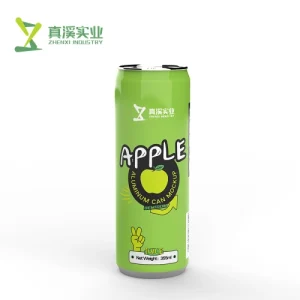On average 13 grams of aluminum are used in one single beverage can. This weighs less than many other fluids contained in cans, and the light weight adds up: it makes 70% of the can's total mass. Aluminum beverage cans are usually produced using an alloy: either 3104 (where magnesium or manganese is added to the base metal), which balances strength with malleability; and in comparison shows a tensile greater ability.
Beverage cans are made by rolling aluminum into sheets that range usually in thickness from 0.2 to 0.3 millimeters Cans are made with these into sheets, and 1.5 kilograms of aluminum is used for every 100 conventional-size cans that are manufactured from this process This efficiency speaks to aluminum's price advantage and production ease.
Aluminum can recycling dramatically reduces the environmental impact of beverage cans. Aluminum The recycling of aluminum saves as much as 95% in energy costs required to turn ore into raw aluminum. The result is more than theoretical savings, with the use of recycled aluminum costing about $1,200 per ton vs. $2,000 for virgin material.

The above data is based on the historical recovery rate of aluminum can recycling, as more than 75% of beverage cans are recycled in the United States. This advanced recycling rate not only saves resources but also promotes the circular economy in which materials are repeatedly reused, minimizing waste and its environmental impact.
Quotes from the industry Highlights aluminum's efficacy in beverage can production. Aluminum is the material of choice 102 to produce beverage cans because it is lightweight, strong and can provide a highly recyclable package. Industrywide sentiments echoed back to this, indicating that packaging needs aluminium.
It has caught on for very good reasons, primarily its sustainability over time compared to all kinds of aluminum cans. Aluminium, however, does not lose its performance properties in recycling and can therefore be recycled repeatedly. The feature helps provide an eco-friendly packaging arrangement, contributes to efforts across the world working towards less plastic waste.
The recyclability of aluminum has contributed to the extensive use and success in beverage can production. Aluminum beverage cans provide to have the best recycling rate and economic benefits that are, in fact not available anywhere else through other materials. For more information on aluminum Beverage Cans specifically, see Beer can version.